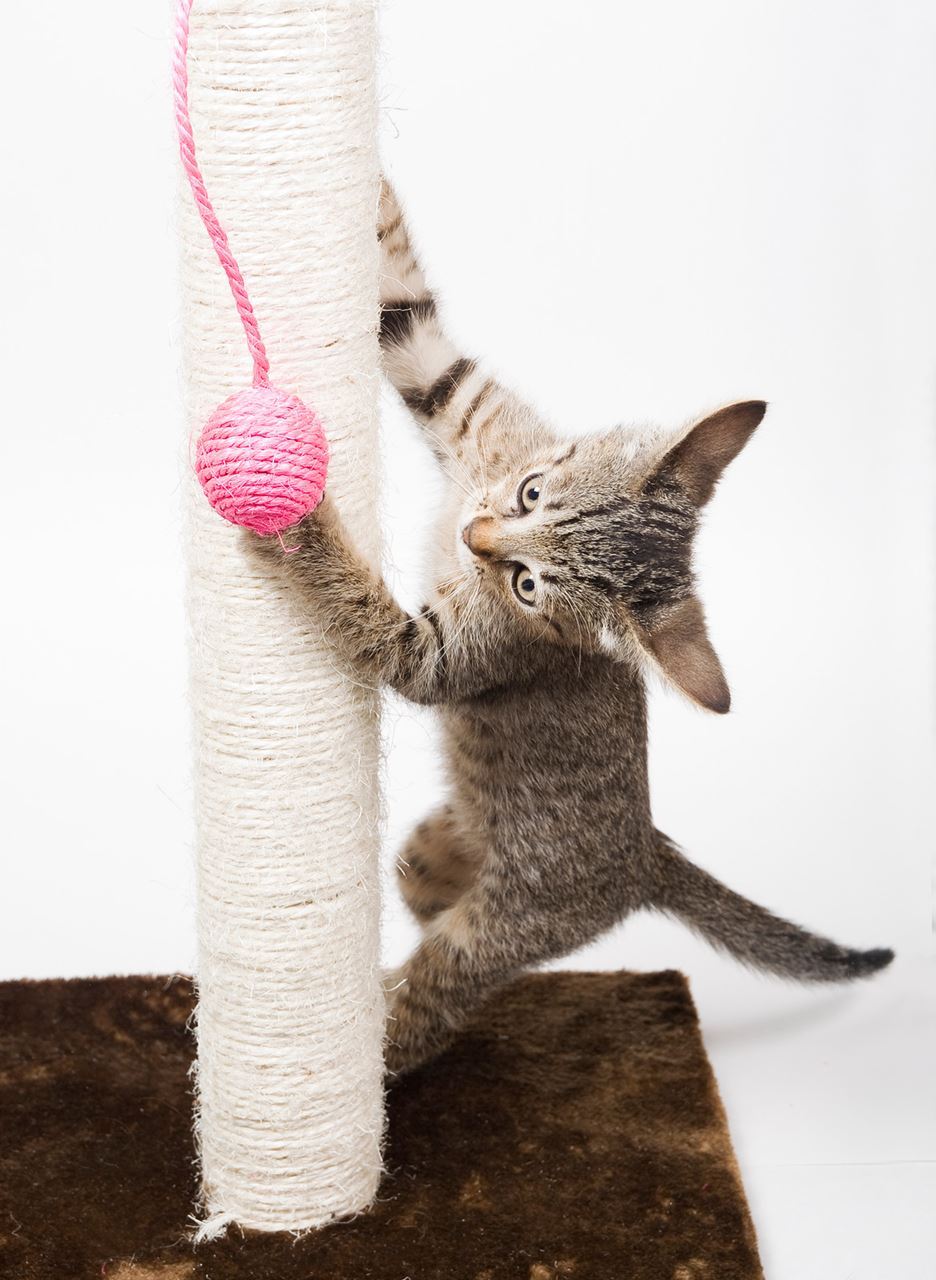- Home
- Divisional Committees
- Feline Division
- Feline Articles
- Kitten Garten
By exposing kittens to the things they are likely to experience in their lives, they become cats who experience less fear, stress, and anxiety—and as a result, they have fewer behavior problems throughout their lives. I Kitten classes should focus on desensitizing kittens to common handling procedures they will experience both at home and at the vet clinic. They may teach some foundational behaviors, such as walking on a harness and leash, or acclimating the kitten to a carrier and car rides. And as important, they should educate you about basic cat care, behavior, communication and environmental enrichment needs. If you don’t have a kitten garten class in your neighborhood, don’t despair. When you bring your kitten home, keep in mind the types of situations your cat will likely be exposed to during his life, and present those situations to him as a kitten. It is essential that these experiences are positive and the kitten does not experience fear in any of the situations presented. Each of these exposures should be presented carefully and with positive reinforcement, by pairing the socialization experience with positive rewards. Should the kitten display signs of fear, make the experience less intense. Present new things in such a way that he can approach a stimulus on his own terms and at his own pace. You can also create a socialization schedule for your new kitten. For example, get him used to guests in the home so he does not spend the rest of his life hiding when people visit. You can easily do this by inviting friends over for coffee or dinner and finding ways to make the experience rewarding for the kitten. Encourage him to approach your guests and reward him with tasty treats when he does so. Ask your friends to help by playing with the kitten (with a familiar toy) and petting him if he is comfortable with it – accompanied by treats. You could even desensitize and countercondition the kitten to the sound of the doorbell and a knock on the door, as these are often a signal for a cat to run and hide. During this time, you can also introduce tooth brushing, pilling, giving liquid medications via syringe, gentle examination of ears, teeth, nails and grooming, training to a harness and leash for walks outside, car rides, nail clipping, bathing, etc. It is unfortunate that many cats are not taken to their vet for regular appointments because it is so stressful on the both the cat and the pet parent to transport the cat to and from the hospital. This is why making the cat carrier a safe haven is critical for the rest of your cat’s life. You can do this by keeping the carrier out and accessible in the home to create and maintain a positive association with it by making it a comfortable resting, feeding or play location. You can also place familiar clothing from a favorite person in the carrier and apply Feliway spray (a calming synthetic feline pheromone) just prior to travel. It may also be a good idea to provide a cover or hiding option for your kitten in or over the carrier. Finally, by withholding food prior to travel you may prevent motion sickness and increase interest in treats at the clinic. You have options to help your kitten have a positive veterinary experience. When possible, look for a Feline professional though the Pet Professional Guild, Fear Free Certified Professional, or find a Cat Friendly Practice®. Contributed by Francine Miller |

 f you have a new kitten and you are lucky enough to have a kitten class available in your area, enroll your kitten immediately. Classes are usually open to kittens from 7 to 14 weeks of age. Kitten classes allow kittens to play together and to be exposed to people of different ages and genders. With positive reinforcement, this exposure helps the kitten to better adapt to all possible changes that may occur in the family and home environment, setting the stage for a lifetime without fear of noises, people, places and experiences. Participating kittens may gain confidence as they travel regularly in the car, play with other kittens and toys and benefit from collecting information and observational learning even if he or she chooses not to interact.
f you have a new kitten and you are lucky enough to have a kitten class available in your area, enroll your kitten immediately. Classes are usually open to kittens from 7 to 14 weeks of age. Kitten classes allow kittens to play together and to be exposed to people of different ages and genders. With positive reinforcement, this exposure helps the kitten to better adapt to all possible changes that may occur in the family and home environment, setting the stage for a lifetime without fear of noises, people, places and experiences. Participating kittens may gain confidence as they travel regularly in the car, play with other kittens and toys and benefit from collecting information and observational learning even if he or she chooses not to interact.